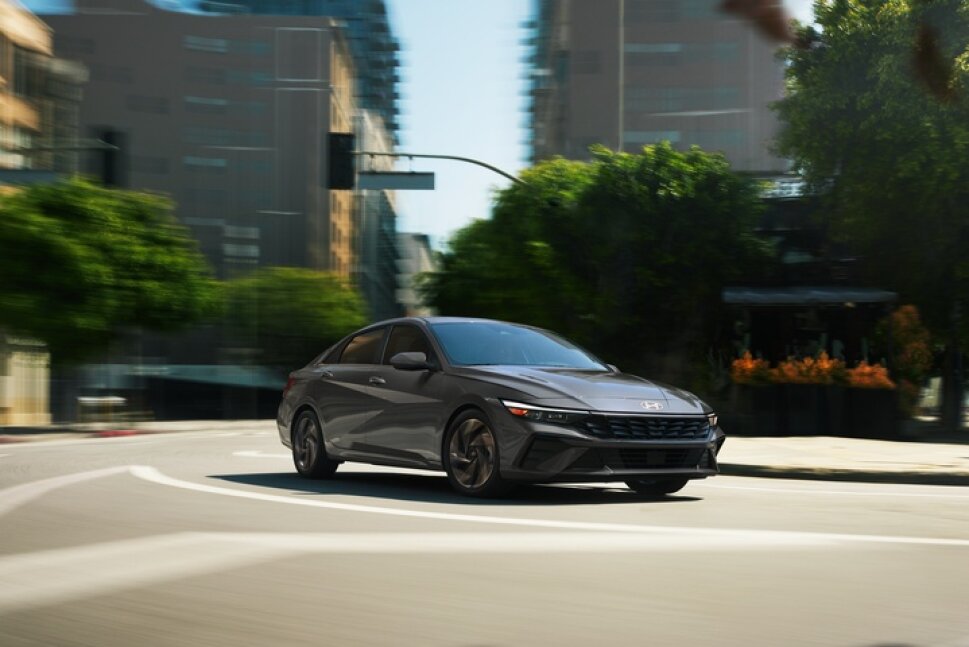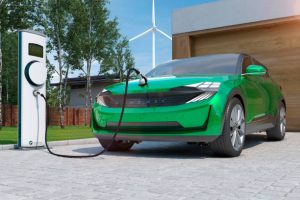Introduction
Economy is the current issue of fuel efficiency among car buyers because of the rising gas prices and ecological consciousness.
Whether you are just a daily worker who is saving money or a green car lover who is saving thousands of dollars a year and saving on the environment, the right vehicle will save you a considerable amount of money annually.
The 2025 model year has incredible plug-in hybrid and hybrid technologies. The car makers have mastered their engines such that they give their customers a high fuel economy, which does not compromise their performance and comfort.
In this guide, the most efficient cars will be analyzed in terms of fuel consumption and will assist you in making an effective decision depending on the efficiency, features, and price in practice.
How We Ranked These Fuel-Efficient Cars

Our ratings give preference to the EPA-estimated combined MPG ratings that are the most accurate measurement of actual fuel economy. In the case of plug-in hybrids, we have used both MPGe (miles per gallon equivalent) ratings and the conventional MPG in our case.
when using nothing but gasoline. We also considered practical considerations such as price, passenger space, safety rating, and important features that are important to ordinary drivers.
Top 5 Fuel-Efficient Cars for 2025
1. Toyota Prius Plug-In Hybrid
MPG Rating: 127 MPGe combined, 52 mpg combined
Electric Range: 44 miles
Our list is topped by the 2025 Prius Plug-In Hybrid which is most efficient. It is also slickly redesigned without the polarizing look of older models but keeps the functionality that popularized the Prius.
The 44-mile electric range is capable of making most of the common day commutes without consuming gasoline and the hybrid system gives very good fuel economy in the case where the battery is exhausted.
2. Kia Niro Plug-In Hybrid
MPG Rating: 108 MPGe combined, 48 mpg combined
Electric Range: 33 miles
It is a small crossover that has astonishing efficiency in a viable package. The Niro also has high seating position and cargo capacity with great fuel economy than traditional sedans. Its low price base competitiveness renders it a choice to both the cost-effective client in search of efficiency.
3. Toyota Prius (Standard Hybrid)
MPG Rating: 57 mpg combined
The conventional Prius is still a fuel economy competitor with no plug-in complexity. The 2025 model has been totally repackaged to include better styling and driving dynamics with a high level of efficiency. To the drivers who do not mind having to charge their car, the basic Prius is a great deal.
4. Hyundai Elantra Hybrid

MPG Rating: 54 mpg combined
The Elantra Hybrid introduces some great fuel economy to the compact sedan. In contrast to a lot of hybrids, it has a conventional style that does not promote its efficiency orientation. The interior is roomy and the warranty is heavily covered, which further increases its attraction to pragmatists.
5. Toyota Camry Hybrid
MPG Rating: 51 mpg combined
The mid-size sedan of Toyota is fully redesigned in 2025 and is available as a hybrid only. The new Camry is a blend of family-friendly room and a great fuel economy, which proves that efficiency does not mean downsizing. Its fined powertrain can provide smooth accelerations, but at impressive MPG rates.
Fuel Efficiency Comparison Table
| Model | MPG/MPGe | Body Style | Starting Price* | Passenger Space | Safety Rating** | Type |
| Toyota Prius Plug-In | 127 MPGe / 52 mpg | Hatchback | Mid $30k range | 5 passengers | 5-star NHTSA | Plug-in Hybrid |
| Kia Niro Plug-In | 108 MPGe / 48 mpg | Crossover | Low $30k range | 5 passengers | 5-star NHTSA | Plug-in Hybrid |
| Toyota Prius | 57 mpg | Hatchback | Mid $20k range | 5 passengers | 5-star NHTSA | Hybrid |
| Hyundai Elantra Hybrid | 54 mpg | Sedan | Mid $20k range | 5 passengers | 5-star NHTSA | Hybrid |
| Toyota Camry Hybrid | 51 mpg | Sedan | Low $30k range | 5 passengers | 5-star NHTSA | Hybrid |
Tips for Maximizing Fuel Efficiency
Even the most efficient car will give low mileage when there is a wrong way of handling it. These tips allow you to maximize out of your fuel efficient car:
- Aim at the best Tire Pressure: Under-inflated tires cause a higher rolling resistance and they might decrease fuel economy by up to 3%. Monitor tire pressure every month and maintain the recommended levels given by the manufacturer.
- Drive Smoothly: Hard braking and aggressive acceleration decrease fuel economy on the highway by 15-30 percent. Slow acceleration and predicting the traffic flow are two important factors that enhance efficiency.
- Lose Abnormal Fat: Each pound of unneeded weight could cost efficiency 1-2 percent. Get rid of unutilized cargo, golf clubs, and other unnecessary items that you do not need at present.
- Routine Service: An engine that is well-maintained is more efficient. Change air filters often, maintain oil changes, and deal with check engine lights.
- Turn on Cruise Control: Cruise Control helps keep a steady flow on the highways, maximizing gas consumption. However,
Avoid using it in hilly terrain where the system may accelerate unnecessarily uphill.
Making the Right Choice for Your Needs
When choosing the most fuel-efficient car, you have to weigh efficiency and your particular needs. Plug-in hybrids have the highest efficiency ratings, but also demand charging infrastructure, and are also more expensive to buy initially. Normal hybrids offer a high fuel economy and a normal refueling option.
When deciding between these efficient options, consider your daily driving habits, availability of charging stations, and budget. Each of the vehicles on our list has great fuel economy, and it does not sacrifice on the reliability or features that the modern driver deserves.
People Also Ask
1. Which are the most efficient fuel-consuming cars in the US in 2025?
The most popular ones are the Toyota Prius Plug-In Hybrid (127 MPGe combined), Hyundai Elantra Hybrid (up to 54 mpg), Toyota Camry Hybrid (51 mpg), Honda Civic Hybrid (50 mpg), and Toyota Corolla Hybrid (50 mpg). These hybrids take over due to their EPA-rated efficiency in sedans.
2. What is the most fuel-saving car in 2025 and why?
Toyota Prius plug-in hybrid models rank highest on the list with 127 MPGe combined and 52 mpg on gas; that is because its advanced plug-in hybrid technology enables it to drive electrically on short routes, thus saving a lot of fuel, and at the same time, it remains practical.
3. Can 2025 have any non-hybrid fuel-efficient cars?
Indeed, models such as Honda Accord (topping 32 mpg combined) and the Volkswagen Jetta (topping 41 mpg highway) offer good efficiency without using any hybrid technology, as they are powered by turbocharged engines and aero designs to achieve better gas mileage in a midsize sedan.
4. How many money will I save in fuel with these sound 2025 models?
The drivers will also be able to save up to 2,500-3250 over five years as opposed to the normal vehicles which are based on the 15, 000 miles in one year. As an example, the Honda Civic Hybrid has a unified fuel performance of 47 mpg that translates to approximately less than 950 dollars per year, compared to other sedans.
5. What will I take into consideration when selecting a 2025 fuel-efficient car?
Focus on EPA ratings, hybrid or plug-in models, whether PHEVs can charge (yes or no), driving safety (e.g., 9.6/10 safety score in the case of Toyota), and practical considerations (such as driving habits). Another one to consider is, in the case of balance between performance and efficiency, the all-hybrid 2025 Camry.
Conclusion
The EPA estimates are used to compare the figures of MPG. Your real mileage will be different based on the conditions of the road and car maintenance, among others. Prices and availability may change.
The ratings of safety can be different depending on the source and the conditions of the tests. It is educational information and may not be regarded as automotive or financial advice. Seek the advice of professional people before making a purchase.












Add Comment